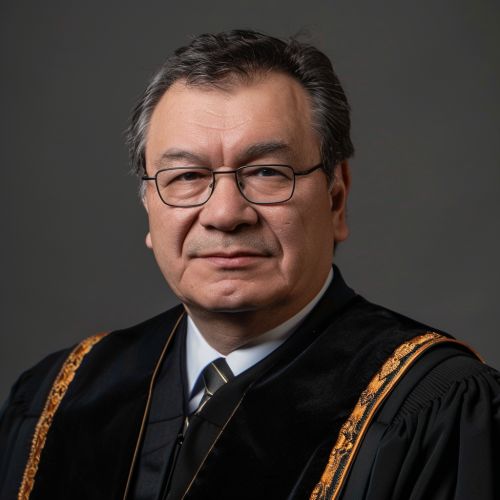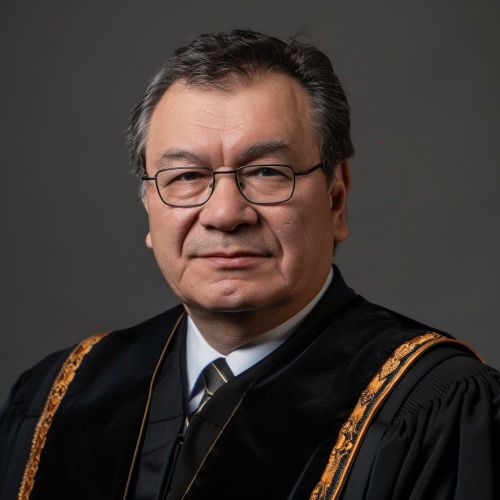Pitirim A. Sorokin
Early Life and Education
Pitirim Alexandrovich Sorokin was born on January 21, 1889, in the rural village of Turya, located in the Vologda Governorate of the Russian Empire. His early life was marked by hardship; his mother died when he was young, and his father, a traveling artisan, struggled to provide for the family. Despite these challenges, Sorokin showed an early aptitude for learning and was largely self-taught until he entered formal education.
Sorokin attended the University of St. Petersburg, where he studied under prominent sociologists and philosophers. He was particularly influenced by the works of Émile Durkheim and Max Weber, which shaped his early intellectual development. Sorokin completed his degree in 1914, and his early academic work focused on the sociology of law and ethics.
Academic Career in Russia
Sorokin's academic career in Russia was both prolific and tumultuous. He began teaching at the University of St. Petersburg and quickly became involved in the political upheaval of the time. Sorokin was an active participant in the Russian Revolution of 1917, initially supporting the February Revolution but later opposing the Bolsheviks. His opposition led to his arrest and imprisonment on multiple occasions.
During this period, Sorokin published several influential works, including "The Sociology of Revolution" (1925), which analyzed the social dynamics and consequences of revolutionary movements. His work was characterized by a rigorous empirical approach and a focus on the interplay between social structures and individual actions.
Emigration to the United States
In 1923, Sorokin emigrated to the United States, where he would spend the remainder of his career. He initially struggled to find academic employment but eventually secured a position at the University of Minnesota. In 1930, he was invited to join the faculty at Harvard University, where he founded the Department of Sociology.
At Harvard, Sorokin continued to develop his theories of social change and cultural dynamics. His magnum opus, "Social and Cultural Dynamics" (1937-1941), is a comprehensive analysis of the cyclical patterns of social and cultural change. Sorokin argued that societies oscillate between ideational (spiritual) and sensate (materialistic) cultural systems, with each phase characterized by distinct social, political, and economic structures.


Theories and Contributions
Social and Cultural Dynamics
Sorokin's theory of social and cultural dynamics is perhaps his most significant contribution to sociology. He posited that all societies undergo cyclical changes, moving through phases of ideational, idealistic, and sensate cultural systems. Ideational cultures are dominated by spiritual and religious values, while sensate cultures prioritize materialism and empirical knowledge. Idealistic cultures represent a synthesis of the two.
Sorokin's analysis extended to various domains, including art, science, ethics, and law. He used extensive historical data to support his claims, examining periods of cultural flourishing and decline across different civilizations. His work challenged the linear progression models of social change that were prevalent at the time.
Altruistic Love
Another significant aspect of Sorokin's work is his exploration of altruistic love. In his later years, he focused on the study of love as a transformative social force. His book "The Ways and Power of Love" (1954) examines the role of altruism in social cohesion and individual well-being. Sorokin argued that love is a fundamental, yet often overlooked, component of social life and that fostering altruistic love could address many of the social ills of modern society.
Integralism
Sorokin also developed the concept of integralism, which seeks to integrate different aspects of human experience—such as science, ethics, and religion—into a coherent framework. He criticized the fragmentation of knowledge in modern academia and advocated for a more holistic approach to understanding human behavior and social phenomena.
Legacy and Criticism
Sorokin's work has left a lasting impact on the field of sociology, influencing subsequent generations of sociologists and social theorists. His theories of social change and cultural dynamics continue to be studied and debated. However, his work has also faced criticism. Some scholars argue that his cyclical theory of social change is overly deterministic and lacks empirical support. Others have critiqued his emphasis on altruistic love as idealistic and impractical.
Despite these criticisms, Sorokin's contributions to sociology are undeniable. His interdisciplinary approach and emphasis on the importance of cultural and ethical dimensions in social analysis have enriched the field and opened new avenues for research.
Selected Works
- "The Sociology of Revolution" (1925)
- "Social and Cultural Dynamics" (1937-1941)
- "Man and Society in Calamity" (1942)
- "The Reconstruction of Humanity" (1948)
- "The Ways and Power of Love" (1954)
